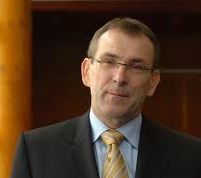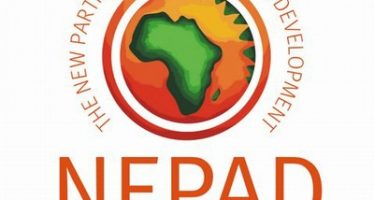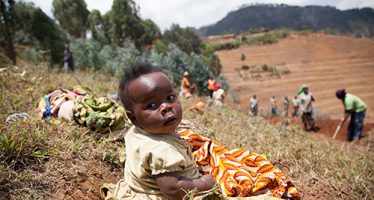Sahel Countries Set to Receive Record Amounts in Aid

Andris Piebalgs
The countries of the Sahel region are set to receive unprecedented levels of aid to help them overcome poverty and political strife. The European Union and the World Bank have pledged to disburse no less than $8bn in fresh aid to six countries: Mali, Mauritania, Niger, Chad, Senegal and Burkina Faso.
The EU is concerned about the security in the region and hopes that its $6.5bn contribution will significantly improve the security situation in the Sahel. “Security is a prerequisite for growth and without it there can be no progress,” said EU Development Commissioner Andris Piebalgs as he returned from a four day visit to the region.
The World Bank has earmarked an additional $1.5bn for the poverty-stricken Sahel countries. This extra aid comes on top of the bank’s existing programs for the region. Over the coming two years, the World Bank will initiate and support various hydropower, irrigation and telecom projects in the six countries that have been chosen to spearhead regional development.
World Bank President Jim Yong Kim was joined by EU Commissioner Piebalgs and UN Secretary-General Ban Ki-moon on a fact-finding mission to the region in early November and concluded upon his return that, “the people of the Sahel desperately need more secure living standards.” Mr Kim added that the World Bank hopes that its aid may help build “a new path for economic growth.”
“Security is a prerequisite for growth and without it there can be no progress.”
– Andris Piebalgs
A large chunk of the EU development aid now pledged will go to projects aimed at improving the quality and reach of governance over the coming seven years. All too often in the Sahel, states are unable to exercise full control over their national territory, leaving vast swaths of lands to rebel groups often susceptible to religious fanaticism.
Mali is set to receive $670m in EU aid to help its government gain control of its northern regions where, despite a large-scale French military intervention earlier this year, Islamist insurgents reportedly still hold sway.
While the EU is mainly concerned with security issues, the World Bank aims for the accelerated development of the Sahel region. The bank’s private sector arm, the International Finance Corporation (IFC), will put up $300m to support business development. The IFC expects its engagement to result in a multiplier effect by attracting private investors in its wake.
Similarly, the World Bank’s Multilateral Investment Guarantee Agency (MIGA) is set to provide up to $585m in political risk coverage over the next year for a natural gas project in Mauretania which has the potential to fuel economic growth in neighbouring Senegal and Mali as well.
UN Secretary-General Ban Ki-moon emphasized the fact the challenges in the Sahel respect no borders and thus call for approach targeting multiple countries. Mr Ki-moon said that “fighting fires” remains crucial but must not be allowed to overshadow the need to address the underlying issues of delayed and faltering development. “We now need to clear away the problems that ignite conflict and cause instability.”
Meanwhile, in The Netherlands the government mulls a sizeable military contribution to the stabilization effort in Mali. The Dutch have been asked to make up the scheduled withdrawal of part of the French force. The government in The Hague has now given the green light for the deployment of up to 400 troops supported by helicopter gunships and fighter planes. The Dutch military contribution is meant to bolster the severely undermanned and underpowered UN MINUSMA (Multidimensional Integrated Stabilisation Mission Mali) force that took over from the French in July and is now charged with maintaining the peace.
You may have an interest in also reading…
UN Economic Commission for Africa: Domestic Resource Mobilization in Africa
By Emmanuel Nnadozie, Chief Economist and Director, Economic Development and NEPAD Division (UN Economic Commission for Africa) A major challenge
Bridging the Gap: How AI Can Enhance Transparency, Governance and Unlock Africa’s Economic Potential Through FDI
A new era of transformation is dawning across Africa, though its light will not touch all corners at once. With
World Bank on Social Protection in Africa: Burkina Faso Mobile Childcare Scheme Could Transform Public Works
Children put to sleep on the ground, exposed to sun, wind and rain near dangerous construction sites – while their

















































































